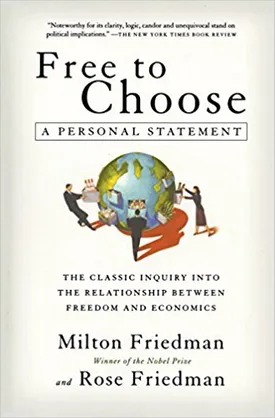Milton Friedman
Milton Friedman was an American economist who achieved international fame for his contributions to the field of economics throughout his long and successful career. Friedman was arguably one of the most influential economists of the twentieth century, and his theories and writings had a major impact on economic, political, and social thought.
Friedman was born in Brooklyn, New York on July 31, 1912, and raised in a Jewish home. He received a bachelor's degree from Rutgers University in 1932, followed by a master's degree in 1933 and a doctorate in economics from the University of Chicago in 1946. During his time at the university, Friedman developed a reputation for his rigorous and scientific approach to economics and developed the concepts of monetarism and the quantity theory of money.
Friedman is widely acknowledged as one of the most innovative and influential economists of all time. His work helped to establish modern economic thinking and his ideas remain influential to this day. Some of his most important contributions to economics include the concept of the permanent income hypothesis, the permanent unemployment hypothesis, the monetarist theory of inflation, the role of monetary policy in economics, and the 'Natural Rate of Unemployment' theory. In addition, Friedman also established the school of 'Chicago economics', which emphasized stimulating economic growth through the efficient use of free markets and free enterprise.
Friedman's books, papers and interviews were extremely influential in the shaping of the modern economic landscape. His two most famous books, Capitalism and Freedom, and Free to Choose, stressed the importance of personal responsibility, limited government control and free markets. He also wrote extensively on the topics of inflation, taxation, economic development, and economic freedom.
Friedman's work helped to shape the economic thinking of the postwar period and influenced governments around the world. In 1976, Friedman was awarded the Nobel Prize in Economics for his "outstanding contribution to the theory and practice of Economics". Today, his works are still used by economists and theorists around the world.
Friedman's writings and theories have had a lasting impact on economic, political and social thought. From taxation and economic development to inflation and monetary policy, Friedman's work continues to shape the way governments and businesses interact and decisions are made. With his influence, Friedman left an indisputable mark on modern economic thought and his theories will continue to shape the world for many years to come.

